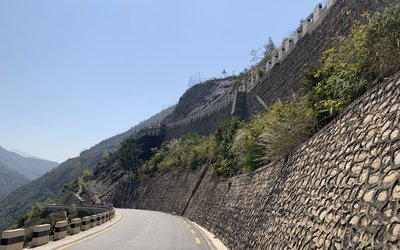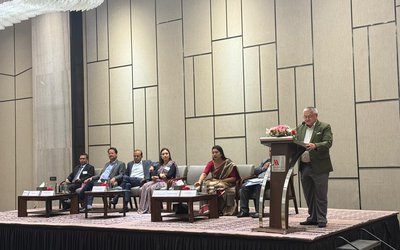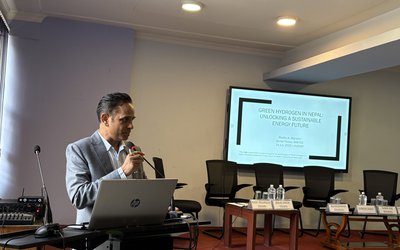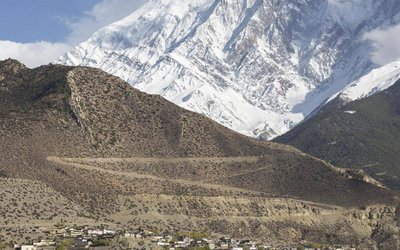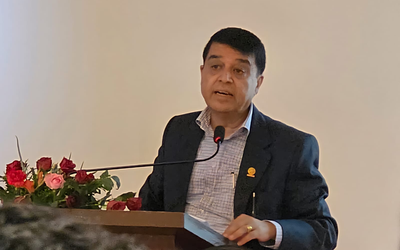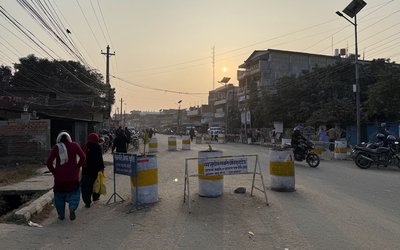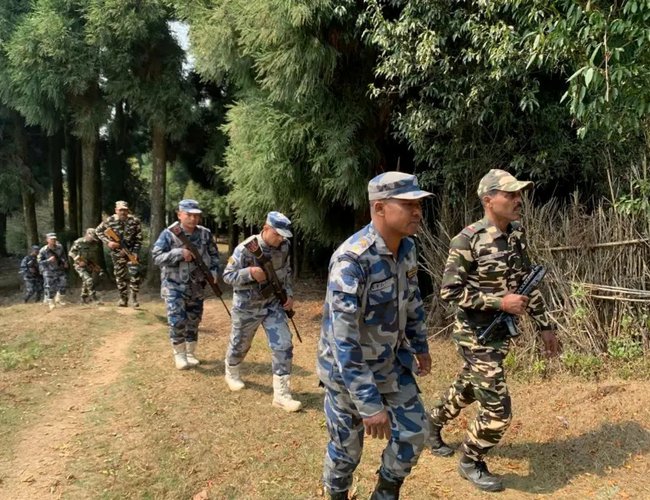
Following the ceasefire, the de-escalation of conflict has commenced along the border between India and Pakistan. However, Nepal is facing heightened security challenges in its southern border areas.
With the restructuring of the state into three tiers of government and the reconfiguration of security measures, the centralized security system that has been in place for decades is now faltering. The intelligence networks have almost ceased to exist due to prolonged instability and political turmoil resulting from the Maoist insurgency and identity-based uprisings.
Given this situation, the emergence of fundamentalism in the southern border and hilly regions is a cause for concern among Nepalese and Indian security officials. These incidents are likely to further fuel the activities of fundamentalists.
Experts have urged the government to be prepared for necessary measures, warning that if the conflict between India and Pakistan intensifies, it will present a challenge to Nepal's national security.
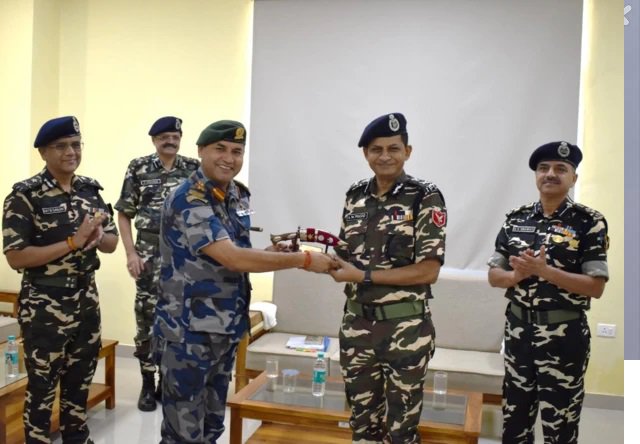
They argue that Nepal, with its porous border with India, would inevitably be affected if tensions between the two nuclear-armed nations escalate to a full-scale war.
They have also highlighted the potential geopolitical consequences, including the risk of Nepali territory being misused.
Government officials have stated that they have heightened security measures and are closely monitoring the situation.
Concerns of Experts
Following the attack in Pahalgam last April that resulted in the deaths of 26 people, including a Nepali national, India conducted airstrikes on various locations in Pakistan and Pakistan-administered Kashmir on Wednesday (May 7).
Pakistan has reported 31 deaths and 57 injuries on its side, while India has confirmed at least 15 fatalities in Pakistani shelling along the Line of Control, the border area between the two countries. The potential escalation of the current conflict remains uncertain.
Deviram Sharma, former head of the National Investigation Agency, expressed concerns about the impact of a war between India and Pakistan on various sectors such as the economy, security, and tourism. He emphasized that such a situation could disrupt daily life and lead to the stockpiling of goods if supply systems are disrupted, resulting in price increases.
Sharma also noted that with open borders, individuals from Pakistan in India could easily seek refuge in Nepal. This could potentially lead to an increase in the number of people seeking asylum.
He stated that it is important to prepare for potential geopolitical challenges in our country, focusing on essentials like fuel, cooking gas, and medicine. While the chances of war are low, national readiness is crucial in case it does occur. Civil aviation experts have warned that if the India-Pakistan conflict results in airspace closures, international flights from Nepal could be affected. There is a concern about the spread of extremism, with security experts noting the possibility of extremist groups from India turning their attention to Nepal.
Sharma, a former head of the National Investigation Agency, expressed concerns about potential disruptions to peace and order by such groups, emphasizing the importance of maintaining peace to avoid long-term consequences.
Reports indicate that India has heightened security measures in the border area following the launch of its military operation 'Operation Sindoor' against Pakistan.
Indian Home Minister Amit Shah has instructed the Border Security Force (SSB) to ensure border security with Nepal and Bhutan, as reported by The Indian Express.

Nepal, a landlocked country, is bordered by India on three sides, with an open border of approximately 1,880 kilometers guarded by the Armed Police Force on the Nepal side and the SSB on the Indian side.
India has raised concerns to Nepal about security issues, such as the influx of counterfeit Indian currency and the movement of extremist groups across the border.
Former head of the National Investigation Agency, Sharma, notes that India has consistently highlighted Pakistan as a haven for terrorist groups during security discussions.
Former Additional Inspector General of Nepal Police Rajendra Singh Bhandari also acknowledges the potential risks if vigilance is not maintained, suggesting that blame could be placed on Nepal if security lapses lead to problems.
He expressed concern that if large countries engage in frequent conflicts, it could result in a situation similar to a bullfight where the calf is killed. He also warned of potential increased surveillance and military operations under the guise of combating terrorism, as well as unwarranted interference in Nepal. Bhandari highlighted instances where individuals involved in Kashmir-related incidents sought refuge in Nepal using fake identities or marrying Nepali citizens. He raised concerns about the presence of criminal activities such as the Dawood gang operating in Nepal in the past and the circulation of counterfeit currency.
The US State Department's 2019 terrorism report mentioned the Indian Mujahideen's activities in India, Nepal, and Pakistan, noting its ties to militant groups in Pakistan and its significant presence in Nepal. However, experts criticize the Nepalese government for not adequately addressing these security concerns.
Political instability and governance issues are to blame for this," stated retired Nepali Army Lieutenant General Binoj Basnyat.
"We need to gather information discreetly. People may be migrating and residing there. We must investigate that. Corruption within our country leads to a tendency to overlook things. We should utilize government mechanisms to conduct thorough investigations."
Terrorism poses a significant challenge. Instead of remaining silent on the statements of larger countries, Nepal, as the chair of the South Asian Association for Regional Cooperation (SAARC), should consider diplomatic actions in the national interest and address its own challenges.
"However, I rarely see this being handled in a mature manner." Nepal released its official statement on the India-Pakistan conflict more than 36 hours after the incident.
In a statement issued on Thursday evening, the Ministry of Foreign Affairs expressed, "The Government of Nepal is deeply concerned about the escalating tensions between India and Pakistan. Nepal calls for a de-escalation of tensions and reaffirms its commitment to long-term peace and stability in the region."
Nepal reaffirms its commitment to combat terrorism and prevent any misuse of its territory by harmful forces against neighboring countries, as stated in the official announcement. The Ministry of Nepal expressed solidarity with all those affected by the recent terrorist attack in Pahalgam on April 22, emphasizing the shared grief and support between Nepal and India.
Prime Minister KP Sharma Oli chaired a meeting of the National Security Council, while Home Minister Ramesh Lekhak led a session of the Central Security Committee. The National Security Council meeting focused on formulating effective strategies to address the evolving situation between India and Pakistan in the upcoming days.
Security measures have been heightened at the Nepal-India border and Tribhuvan International Airport in Kathmandu since Wednesday, with continuous monitoring and analysis by security agencies.
The Home Ministry spokesperson, Ram Chandra Tiwari, emphasized the importance of preventing unauthorized movements and ensuring border security along the open border with India through vigilant monitoring and checks.
The spokesperson for the Armed Police Force, Deputy Inspector General of Police Kalidas Dhaubaji, stated that the Armed Police Force stationed in the border region is on high security alert.
He mentioned that border checkpoints have been reinforced, with thorough checks of people's identity cards and maintenance of records to monitor border crossings. Increased coordination and patrols with counterparts on the other side have also been implemented. Sharma, a former head of the National Investigation Department, suggested that regular checking of identity cards and record-keeping at border checkpoints could enhance border security.
- MELAMCHI WATER SUPPLY: No Interruption During Monsoon
- Jun 25, 2025
- KOREAN RETURNEES: Successful Integration
- Jun 25, 2025
- UPPER TRISHULI-1: Engaging With Local
- Jun 25, 2025
- IME GROUP: Twenty Five Years Of Journey
- Jun 24, 2025
- NEPAL’S AIR POLLUTION: A Growing Health Concern
- Jun 24, 2025
